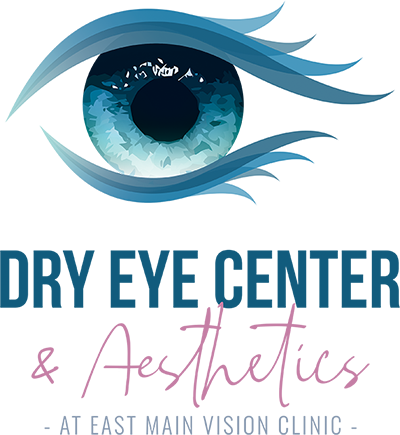April 30, 2023

One of the organs affected by aging is the eyes and the different structures around them. A common condition that impacts people when they reach 40 years and over is dry eye syndrome (DES). The ways dry eye syndrome affects 30% of people over 50 years old is unique to aging.
What Is Dry Eye Syndrome?
Dry eye syndrome is a condition that impairs the creation or evaporation of your tears, making it hard to keep your eyes adequately lubricated. The condition can take two forms, insufficient or unstable tears, each with a different root cause. Your tears help nourish and maintain the health of the eye surface and play a role in clear vision.
Insufficient Tears
Also called decreased tear production, this form of dry eyes occurs when the lacrimal glands fail to produce enough aqueous fluid. The aqueous fluid, also known as the watery layer, is the middle layer of the tear film and the most voluminous.
Unstable Tears Dry Eyes
Also known as evaporative dry eye syndrome, this is the more prevalent of the two primary forms of the condition. This form occurs when the lipid or oily layer of the tear film is of poor quality or is absent. The meibomian glands produce the meibum, the oil that helps protect the other layers from evaporating. The root cause of this form is meibomian gland dysfunction or MGD.
What Are the Symptoms of Dry Eye Syndrome?
Gritty feeling in the eyes.
Sore or sensitive eyes.
Watery eyes or excessive tearing up.
Burning sensation in the eyes.
Discomfort or inflammation of the eyelids.
Itchy eyes.
Eye redness.
How Does Aging Impact the Development of DES?
Lacrimal Glands
While you are young, the lacrimal glands that produce the watery layer of the tear film work well. They sustain the eyes with adequate amounts of fluid, but their function begins to decline as you age. The decline in function is normal and may be unavoidable, so you must find alternatives to lubricate your eyes.
Medication
Aging also predisposes you to more conditions that require ongoing management, like high blood pressure. To manage them well, many people must rely on constant medication, which has other side effects. A common side effect of prescription drugs is dry eye, or they increase the chances of developing the condition.
Menopause
Menopause is a prevalent cause of dry eyes in women over 50—about 61% of them have the condition. Additionally, some women may use HRT, hormonal replacement therapy, a therapy closely related to the development of DES. Changing hormones are rough on the system and frequently lead to other side effects.
Meibomian Gland Dysfunction
The most common cause of dry eye syndrome is meibomian gland dysfunction. When you age, the chances of developing MGD increase significantly as your glands are much more likely to become blocked. MGD can occur due to thicker oil secretions, a form called obstructive MGD.
We all want to age gracefully, understanding how age plays a factor in our bodies and the symptoms that can increase, makes it easier to be proactive with treatment. For more on how age impacts the development and severity of dry eye, call East Main Vision Clinic in Puyallup, Washington at (253) 780-0700 to schedule an appointment today.



